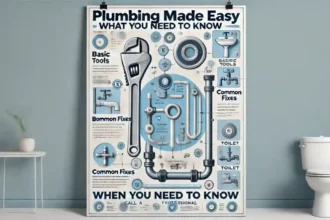Mobile Homes
Mobile homes, also known as manufactured homes or prefabricated homes, are an affordable and flexible housing solution. Built in factories and transported to their final destinations, they offer an attractive alternative to traditional homes.
Whether you’re new to mobile home living or considering a mobile home community, this guide will provide everything you need to know, from their history and evolution to their benefits, challenges, and future potential.
A Brief History of Mobile Homes
The history of mobile homes dates back to the early 20th century when they originated as house trailers, designed for travel and temporary accommodation. By the 1950s, they began to evolve into stationary housing, with wider units like the ten-wide mobile home offering a more permanent living solution.
The introduction of the HUD Code in 1976 was a turning point, transforming manufactured homes into safe, durable, and energy-efficient dwellings. Today, modern manufactured homes adhere to strict manufactured housing standards, making them a reliable option for affordable housing. For a detailed overview of their evolution and features, you can explore the Wikipedia article on mobile homes.
Mobile Home Parks: A Community Solution
Mobile home parks—also known as trailer parks, mobile home communities, or manufactured home communities—are neighborhoods where homeowners lease land to place their homes. These parks typically provide more than just a plot of land. Residents benefit from utilities like water, sewer, electricity, and natural gas. Many parks also offer amenities such as garbage removal, lawn care, community rooms, swimming pools, and playgrounds, making them vibrant places to live.
How Common Are Mobile Home Parks?
In the United States, there are over 38,000 mobile home parks, ranging in size from small communities with just a few homes to large neighborhoods with over 1,000 units. For example, as of 2019, New York State alone had 1,811 parks housing 83,929 mobile homes.
Specialized Mobile Home Communities
Mobile home parks cater to a wide range of lifestyles, and many are tailored to specific needs:
- Retirement Communities: These parks are designed for residents aged 55 and older, offering a quiet and supportive environment for retirees.
- Seasonal Communities: Located in vacation hotspots, these parks serve as summer homes or seasonal retreats.
Modern Mobile Homes and Their Evolution
Newer mobile homes, particularly double-wide models, are built to high standards and often comply with local building codes. They use materials similar to those in site-built homes, reducing depreciation rates and improving their long-term value. These modern homes frequently resemble site-built homes in appearance, with the primary distinction being a slightly lower roof slope, allowing for easy transportation under bridges and overpasses.
Emerging Trends in Mobile Home Parks
A growing trend in mobile home communities is offering resident-owned lots. In these parks, homeowners not only own their mobile homes but also the land they sit on. These neighborhoods often resemble condominium communities, with shared facilities like swimming pools and meeting rooms. Residents pay membership fees and dues, fostering a sense of shared ownership and community involvement.
Construction and Types of Mobile Homes
Mobile homes are factory-built homes available in several configurations:
Single-Wide Homes
- Width: Up to 18 feet
- Length: Up to 90 feet
- Easy to transport and often traded or moved.
Double-Wide Homes
- Width: 20 feet or more
- Length: Up to 90 feet
- Delivered in two sections and assembled on-site.
Triple-Wide and Multi-Section Homes
- Larger, offering expansive living spaces but less frequently produced.
Park Model Homes
- Smaller units often used for recreation, bridging the gap between RV vs mobile homes.
While site-built homes remain stationary, some mobile homes retain mobility, especially single-wides, which are easier to transport. Mobile vs modular homes differ in that modular homes are also factory-built but must meet local building codes and are assembled on-site. If you’re curious about how modular homes compare to site-built homes in terms of cost, check out our article on Are Modular Homes Cheaper Than Traditional Homes? for a detailed breakdown.
Advantages of Mobile Homes
- Affordable Housing Options: Mobile homes are a cost-effective solution for those seeking affordable housing without compromising on quality.
- Energy Efficiency: Modern designs emphasize energy efficiency, reducing utility costs and environmental impact.
- Flexibility and Mobility: Unlike traditional homes, mobile homes offer the flexibility to relocate if needed.
- Quick Construction: Built in controlled factory settings, mobile homes are ready faster than traditional homes, ensuring quick construction.
- Low-Maintenance Living: Simplified construction and durable materials result in low-maintenance living.
- Community Living: Many people enjoy living in a mobile home park, which fosters community living with amenities like pools and clubhouses.
- Customization Options: From layouts to finishes, mobile homes can be tailored to your preferences.
- Cost-Effective Financing: Specialized mobile home loans and mobile home financing options make them accessible to more buyers.
- Eco-Friendly Living: The rise of sustainable mobile homes and green mobile homes aligns with growing environmental awareness.
Challenges of Mobile Homes
While mobile homes have many advantages, they also present challenges:
- Depreciation: Unlike site-built homes, mobile home depreciation can occur, particularly in mobile home parks.
- Zoning Regulations: Mobile home zoning laws can restrict placement, requiring careful research.
- Structural Vulnerability: Older models or improperly anchored homes are susceptible to high winds or storms.
- Additional Costs: Site preparation costs, transportation costs, and mobile home park fees can increase the overall expense.
- Insurance Complexity: Securing mobile home insurance may involve higher premiums or specific conditions.
- Stigma and Misconceptions: Outdated views about manufactured housing can affect perceptions and resale value.
Buying and Selling Mobile Homes
Whether you’re buying a mobile home or selling a mobile home, here are key considerations:
- Inspections and Appraisals
Ensure a professional mobile home inspection and appraisal for accurate pricing. - Financing Options
Explore mobile home loans, FHA, VA, and Fannie Mae programs for financing. - Finding the Right Community
Research mobile home communities near me to find the best fit for your needs. - Resale Market
Used homes are often resold as affordable options or traded for newer models.
Living in a Mobile Home
Life in a mobile home offers unique advantages:
- Affordable Lifestyle: Reduced costs make mobile home living an economical choice.
- Community Living: Parks foster a sense of community living, with shared spaces and amenities.
- Customization and Upgrades: Personalize your space with mobile home upgrades or creative mobile home interior design ideas.
- Landscaping Options: Enhance your property with mobile home landscaping for added curb appeal.
- Hurricane Safety: Optional features like hurricane straps improve security during extreme weather.
- Retirement Living: Many mobile home retirement communities cater specifically to seniors, offering age-friendly amenities.
Future of Mobile Homes
The manufactured housing industry is evolving, driven by innovations in sustainable mobile homes, tiny homes vs mobile homes, and smart home technology. As more people embrace green mobile homes, the future of mobile homes looks promising. Trends in mobile home park living and mobile home market trends reflect increasing acceptance and growth in this sector.
Conclusion
Mobile homes are an essential part of the modern housing landscape, offering a mix of affordability, flexibility, and customization. Whether you’re exploring mobile home parks, considering mobile home financing options, or looking for mobile home living guides, understanding their history, advantages, and challenges can help you make an informed decision. With continued advancements in manufactured housing standards and eco-friendly designs, mobile homes are poised to remain a popular choice for affordable housing well into the future.












